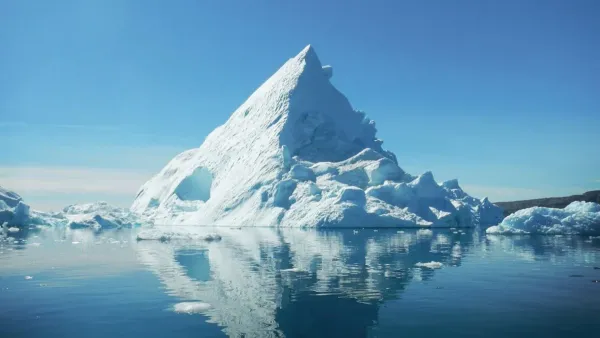
In a dramatic and alarming climate event, temperatures at the North Pole have surged above freezingmarking one of the most extreme winter warming events ever recorded. Reports indicate that temperatures rose 20 degrees Celsius above the seasonal averageraising urgent concerns among climate scientists about accelerated Arctic ice loss and the long-term impacts of global warming.
According to data from the European Union’s Copernicus Climate Change Servicetemperatures at the North Pole surpassed 0 degrees Celsius on Sundayan anomaly for the Arctic winter. An Arctic snow buoy recorded a temperature of 0.5°Cconfirming the unprecedented warming trend.
Mika Rantanen, a researcher at the Finnish Meteorological Instituteexplained that while precise temperature readings in remote Arctic regions are difficult to obtain, climate models suggest a deviation of more than 20 degrees Celsius from normal seasonal temperatures.
Julien Nicolas, a senior scientist at Copernicus Climate Change Serviceattributed the temperature surge to a deep low-pressure system near Iceland. This system redirected warm air toward the Arcticfurther intensified by unusually warm sea temperatures in the northeastern Atlantic.
While such weather events are rareNicolas emphasized the need for further study to determine whether these occurrences are becoming more frequent due to climate change.
Similar Arctic warming events have been recorded in the past. In December 2016the North Pole experienced a winter heatwavewith temperatures reaching 32°F (0°C)—a highly unusual occurrence for the season.
Studies indicate that the Arctic is warming nearly four times faster than the global averagea phenomenon known as Arctic amplification. The rapid loss of reflective sea ice accelerates warming by increasing the absorption of solar energywhich in turn exacerbates global temperature rise.
The repercussions of Arctic warming extend beyond climate statistics. Indigenous communities that depend on stable ice conditions for their way of life face displacement and food security challenges. Additionally, Arctic wildlife—including polar bears, whales, and seals—are experiencing habitat disruptionsthreatening their long-term survival.
This latest extreme warming event reinforces the pressing need for global efforts to mitigate climate change. As the Arctic continues to experience unprecedented temperature surgesscientists warn that without immediate actionthe consequences for global climate stability will be severe and irreversible.